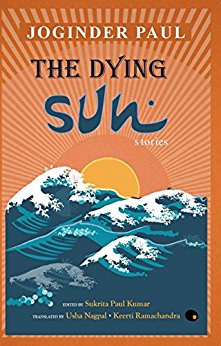After reading a few young home-grown Indian English authors, switching to Joginder Paul’s short fictions in their English translation by Usha Nagpal and Kirti Ramchandran was like a breath of fresh air. Unlike the pseudo-political, faux-emotional and melodramatic ethos of those novels, Paul’s stories, woven in the warp and woof of elemental human emotions, soaked in earthy realities of life and presented in an effortlessly simple style have the ability to jolt the reader out of his sense of complacency and make him sit up and think about the general drama of pain and suffering that life is.
Urdu short story caught momentum in the wake of the rising social consciousness of writers during the Progressive Writers’ Movement and the Nationalist Movement in the hands of its maverick practitioners like Premchand, Sa’adat Hasan Manto, Rajinder Singh Bedi and others. This gradually was replaced by the emergence of Modernism in Urdu in the late fifties and early sixties whereby writers like Surinder Prakash and Balraj Komal dexterously used techniques such as symbolism and stream of consciousness to delineate the alienation of the modern man and the prevalent existentialist crisis in life.

